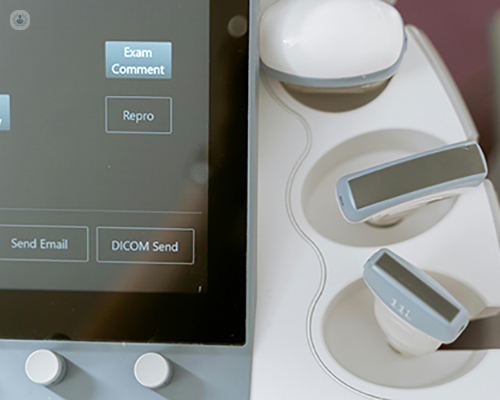Understanding urogenital ultrasound
Written in association with:Ultrasound diagnostics is a powerful and non-invasive imaging technique commonly used to evaluate the urogenital system. This system includes the kidneys, bladder, ureters (the tubes connecting kidneys to the bladder), and in men, the prostate and testes. Understanding when an ultrasound is needed can help you take better control of your health.

What is an ultrasound?
An ultrasound uses high-frequency sound waves to create images of the inside of your body. It is safe, painless, and doesn’t involve radiation, unlike X-rays or CT scans. The procedure usually involves placing a small device called a transducer on the skin over the area being examined. The transducer sends sound waves into your body, which bounce back to create an image on a screen.
Common reasons for a urogenital ultrasound
Kidney stones
One of the most frequent reasons for a urogenital ultrasound is the suspicion of kidney stones. Symptoms may involve intense pain in the back or side, presence of blood in the urine, and frequent need to urinate. An ultrasound can help detect stones in the kidneys or ureters and guide treatment decisions.
Bladder issues
If you experience urinary problems such as difficulty urinating, frequent urination, or blood in the urine, your doctor might recommend an ultrasound. This can help identify conditions like bladder stones, tumours, or structural abnormalities.
Prostate problems
In men, an ultrasound of the prostate may be necessary if there are symptoms such as difficulty urinating, a weak urine stream, or pelvic pain. These symptoms could be indicative of an enlarged prostate or prostate cancer.
Testicular concerns
Testicular pain, swelling, or lumps should never be ignored. An ultrasound can help determine the cause, which could range from infections to more serious conditions like testicular cancer.
Kidney function and health
Chronic kidney disease or acute kidney injury can be evaluated using ultrasound. Symptoms of these conditions include swelling in the legs, high blood pressure, and changes in urination patterns. The ultrasound can show if the kidneys are properly filtering waste from your blood and if there are any structural abnormalities.
What to expect during the procedure
For most urogenital ultrasounds, you’ll be asked to lie on an examination table. A special gel is applied to the skin to help the transducer make better contact. The technician will then move the transducer over the area being examined, capturing images that will be reviewed by a doctor.
When should you speak to a doctor?
If you experience any symptoms such as persistent pain in your lower abdomen, blood in your urine, or changes in your urination patterns, it is important to consult with your doctor. Early diagnosis through ultrasound can lead to more effective treatment and better health outcomes. By understanding when and why an ultrasound might be indicated, you can be more proactive about your health and work closely with your healthcare provider to ensure the best possible care.


